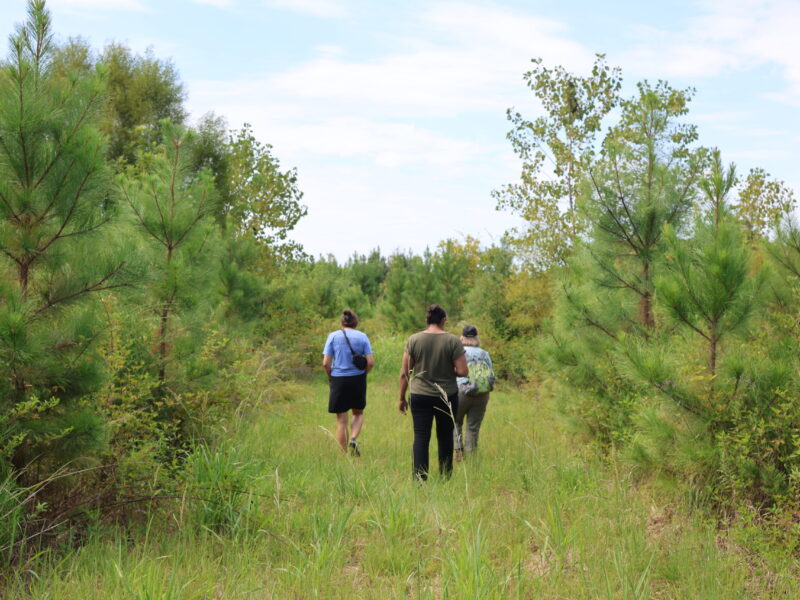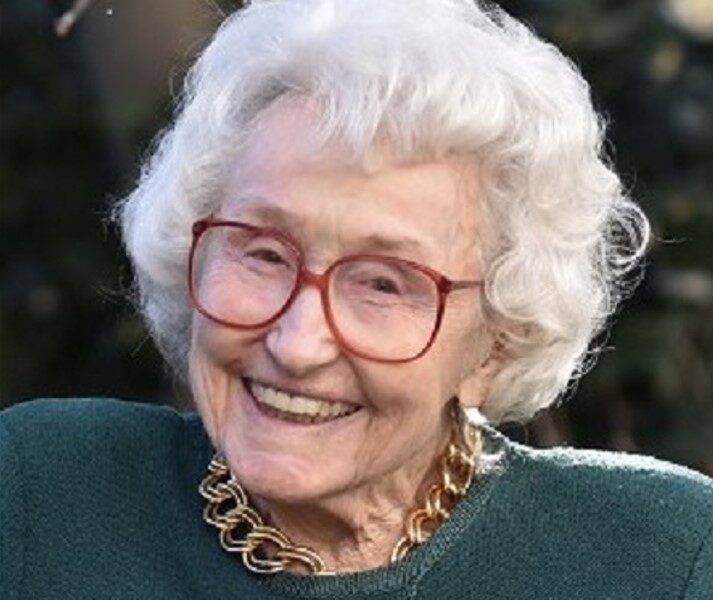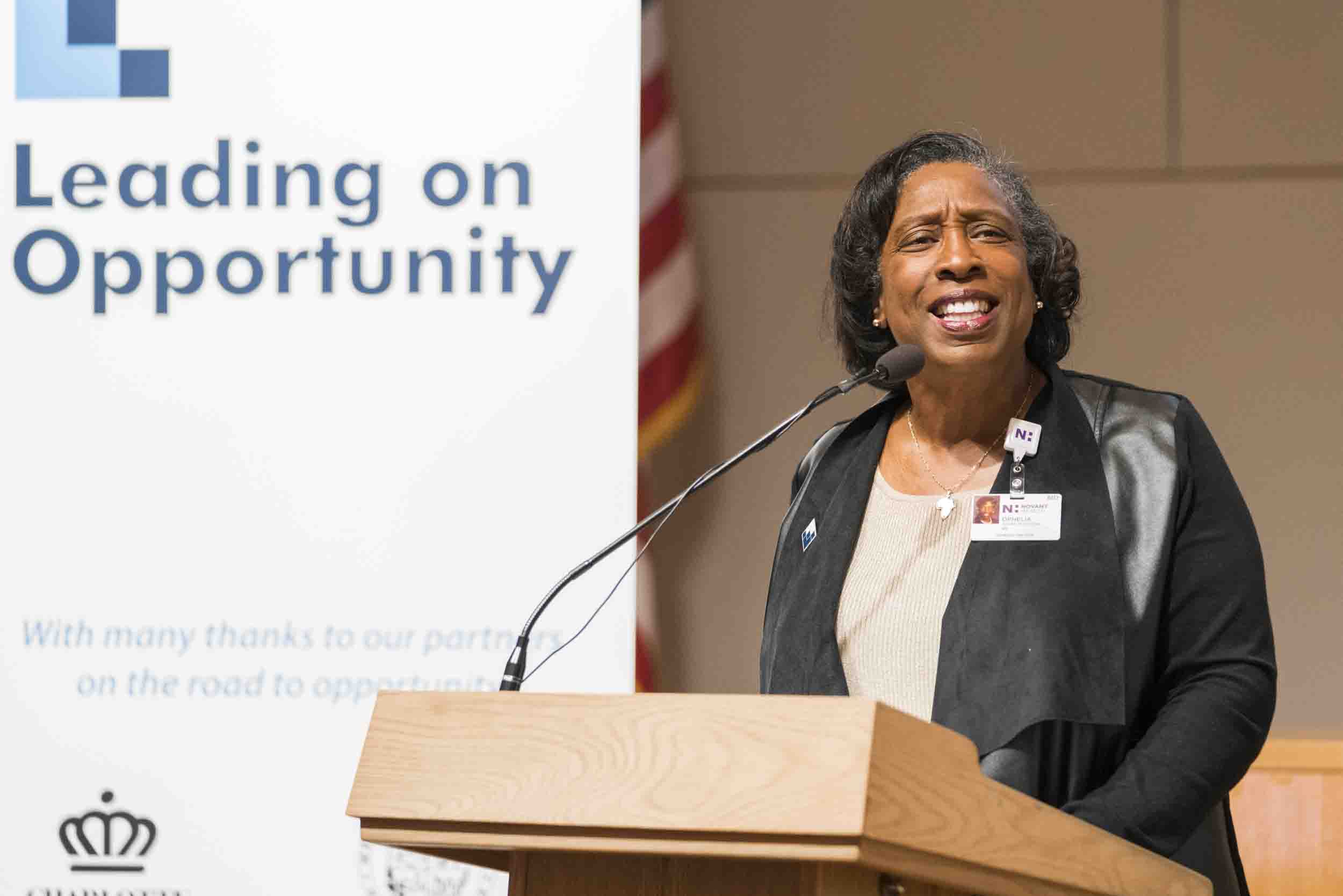
A Lifetime of Care For All People
Friends remember life and legacy of Dr. Ophelia Garmon-Brown
Much has been written about Dr. Ophelia Garmon-Brown, the trailblazing family physician, hospital executive, impassioned community leader, missionary and ordained minister who died on Nov. 17, 2021, of cancer at her home in Charlotte. Prior to her death, she always seemed to be in multiple places inspiring multiple people – mentoring, preaching and teaching, often simultaneously.
But there are some things known best to those close to this celebrated woman whose spiritual presence prevailed in the hearts and minds of countless colleagues, friends and family members.
For instance, the doctor known for her easy smile and welcoming spirit was actually an introvert, according to her friend Tanya S. Blackmon. “She had so much energy, and she talked to everybody, (so) I made the assumption that she was an extrovert,” said Blackmon, executive vice president and chief diversity, inclusion and equity officer at Novant Health, where Garmon-Brown worked.
It wasn’t until Garmon-Brown and other colleagues completed a personality assessment at work that Blackmon discovered otherwise. At first, Blackmon was surprised to learn her friend was an introvert. Then she came to a realization.
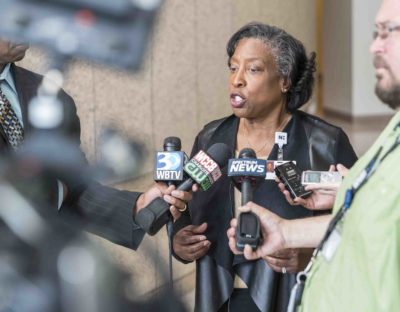
Dr. Ophelia Garmon-Brown talks to the press after the release of Charlotte-Mecklenburg Opportunity Task Force report.
“What happened was she gave so much of herself, because she cared so deeply and so much for people, but when she got home, she was exhausted,” Blackmon said. “But no one ever saw that. They only saw the wonderful, warm, connected Ophelia that had all of this energy. Even to her last days, Ophelia was caring about people and having energy to love people.”
Opening Doors
Garmon-Brown, born Sept. 28, 1954, grew up poor in Detroit. But by 1980, the enterprising young woman had earned a bachelor’s degree in biology from North Carolina Central University and her medical degree from the University of North Carolina at Chapel Hill. After graduation, she was a resident at Carolinas Medical Center in Charlotte (now Atrium Health), where she was also the hospital’s first Black female family-medicine resident.
Following her residency, she became a physician and partner of Metrolina Family Practice and later joined the Nalle Clinic, where she eventually became medical director of its urgent care. She was also medical director of Presbyterian Urgent Care Centers and Presbyterian Company Care (now Novant Health).
In the mid-’90s, LaTonya Summers was a mental health counselor in the psychiatric unit at Presbyterian near uptown Charlotte. She recalled, fondly, that Garmon-Brown made her “feel proud to be person of color at Presbyterian Hospital.”
“Back when corporations were committed to diversity and inclusion in word but not deed – and affirmative action was a bad taste in people’s mouth – Ophelia was small in stature, but her voice was strong, and her work was big at Presbyterian Hospital,” Summers recounted.
It didn’t take long for Garmon-Brown to be promoted at Presbyterian, said Summers. Her emergence led to other Black professionals being promoted. Garmon-Brown’s work was instrumental in changing the face of what leadership looked like at the hospital.
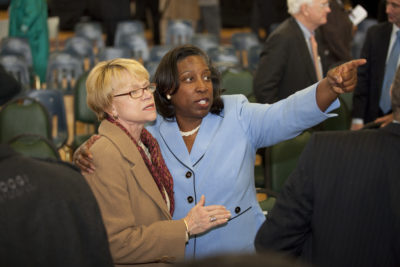
Dr. Ophelia Garmon-Brown talks with Dianne English at a Project L.I.F.T. kickoff event.
“Ophelia worked to make it a place of care for all people,” added Summers, who is now an assistant professor of clinical mental health and addictions at Jacksonville University in Florida. That included “non-physician people. She acknowledged us in the hallways and cafeteria and asked what we did there and made herself available to us.”
Garmon-Brown later became vice president of Business and Community Partnerships at Novant Health, as well as the team physician for the Charlotte Sting, the former WNBA franchise. She also served as vice president of business and community partnerships in Novant Health’s Community Benefit Department, and eventually became Novant Health’s senior vice president of physician services.
Throughout her career, Garmon-Brown was dedicated to learning and growing – within her chosen profession and outside of it. She once told friend and colleague Jesse Cureton, executive vice president and chief consumer officer at Novant Health, that she wanted to be viewed as a business executive with a strong business acumen.
“I can teach you all those things,” said Cureton, a former bank executive. “But your gift is something that you can’t teach. What I want to encourage is for you to embrace and elevate that more. What we can’t get is what you bring in the room. That is unique to you.
“It was just beautiful watching her more and more, as she evolved, embracing Dr. Garmon-Brown.”
Countless people embraced Garmon-Brown and witnessed her evolution, which included her time as the medical director of the Charlotte Community Health Clinic, a facility she co-founded as Charlotte’s first free clinic, providing care for the uninsured and underinsured.
She found time to go back to school, earning a master’s in divinity at Union Theological Seminary and Presbyterian School of Christian Education in 2007. She was a member of St. Luke Missionary Baptist Church. And she established a mini health clinic in Kenya.
But she also helped plenty of people right here at home.
“Dr. Garmon-Brown probably financed more people in her family, and people that weren’t family members,” Cureton said. “Because if there was someone in need, she shared her treasure. And she did it without any recognition. She could not see someone that needed something, that didn’t have access to it, without doing something. And that was part of her legacy. (She would say), ‘I can’t do (donate large sums of money to major organizations) in good faith when I look out in my neighborhood and a child there needs tuition. A thousand dollars there would mean everything.’”
Providing Opportunity
In 2011, Foundation For The Carolinas was one of six charitable groups that provided original funding for Project L.I.F.T. FFTC donated $2 million to the public-private partnership. Garmon-Brown and Anna Spangler Nelson both served on the board of Project L.I.F.T., an innovative initiative designed to transform education in Charlotte’s west corridor schools.
Nelson remembered Garmon-Brown fondly. “Not only did Ophelia deeply aspire to make a better world – she truly lived it. She exhibited love and kindness in every way, treating each person with honor and compassion, as if they were her best friend. A big smile, a warm hug, an encouraging remark – no matter the challenges.”
Following the publication of a 2014 study that ranked Charlotte last in major cities providing opportunities for upward mobility among low-income people, FFTC helped mobilize the Charlotte-Mecklenburg Opportunity Task Force (now know as Leading On Opportunity), which conducted extensive research studying the causes of the community’s low mobility rate.
Alongside local bank executive Dee O’Dell, Garmon-Brown was asked to co-chair the task force whose job it was to study the issues and produce a report providing recommendations to the community. Garmon-Brown helped produce that report while undergoing cancer treatment – including surgeries for brain and kidney cancer.
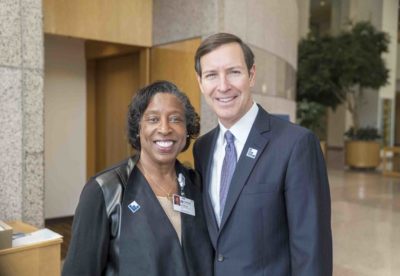
Close friends Dr. Ophelia Garmon-Brown and Dee O’Dell co-chaired the Charlotte-Mecklenburg Opportunity Task Force.
Finding consensus in a task force made up of 20 community leaders coming from diverse backgrounds with differing perspectives was not easy. However, Nelson said her friend was always able to bring people together, no matter how far apart they were.
“It was wonderful how she bridged various communities, fluidly crossing lines that most others might see as borders,” Nelson said. “This was perhaps her most important contribution, among so many. Ophelia was humanity at its very best.”
Profile in Courage
Garmon-Brown was treated for cancer in 2012, 2014 and 2016. The latter year was when she learned she had a brain tumor and cancer in her right kidney.
A year before her death, The Unexpected Gift: Profiles in Courage From Cancer Survivorship was published. Garmon-Brown wrote the book’s introduction. Working with her on The Unexpected Gift was “one of the highlights of my career,” said Stuart Horwitz, one of the book’s co-authors. “She was clear about her vision for the book but was always willing to work collaboratively as that vision came into reality. … We were dealing with some tough stuff by the nature of this project, but her smile always buoyed us through the challenging emotions.”
Days before she died in 2021, Garmon-Brown called multiple people, including Jesse Cureton, telling them she had decided against doing anything to prolong her life. “This bout with cancer has strengthened my faith,” she told her friend of more than 30 years. “And it just occurred to me that if I’m a believer, I can’t continue this (treatment).”
“‘G.B., what are you saying?’” Cureton recalled asking her. “I knew what I was hearing, but I didn’t want to accept it.”
“Jesse,” she replied, “I don’t know how much longer I’ll live, but whatever that is, I’m good with it.”
Tanya Blackmon vividly recalled the day she last saw the woman she calls her friend, mentor, colleague and sister. Blackmon was working remotely at home, finishing up videoconference calls and preparing for upcoming work presentations. In the midst of that and other activity, Blackmon recounted a voice said to her, “You need to go now and see Ophelia.”
She immediately drove to Garmon-Brown’s home. Her ailing friend had just settled into bed, so Blackmon blew her a kiss from the bedroom’s doorway. “When I blew her the kiss, I didn’t know that I was telling her goodbye. I thought I was going to see her the next day. But I’m grateful that I listened to the voice and that I went to see her that day.”
“It’s still hard to tell that story,” said Blackmon, who struggled to remain composed as she spoke, “because I knew that she was transitioning, but I didn’t expect it (to happen the very day).”
Garmon-Brown was the recipient of some 30 honors, according to Novant Health, including the 2018 Order of the Long Leaf Pine and the 2020 Citizen of the Carolinas from the Charlotte Regional Business Alliance. Cureton said Novant Health “will honor her in some way. … We’re looking at an opportunity to have a (public) gathering to honor her (Garmon-Brown’s funeral was broadcast online).”
In the meantime, Cureton continues to cherish his memories of Garmon-Brown, the indomitable woman called “G.B.” by her colleagues at Novant Health.
“She’ll be with me for the rest of my life,” he said.


